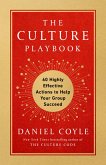In today's organisational landscape and wider society, two critical challenges loom large: the erosion of trust and the imperative to adapt our current work approaches to address the evolving needs of organisations and communities facing heightened complexity and uncertainty. Recent research underscores a shift in focus from the conventional pillars of judgment and dependability towards relational trust as the linchpin of effective relationships. At the heart of relational trust lies the concept of mutuality, characterised by a set of principles that foster deep social bonds through care, support, and shared responsibility for the collective welfare of the corporate system. Developing mutuality on a systemic level necessitates cognitive evolution rather than mere behavioural change, as demonstrated by our two-decade investigation. We have identified six archetypes that impede the growth of relational trust and mutuality within organisations, hindering the creation of safe and productive spaces. This book presents practical guidance encompassing tips and strategies to steer your corporate system through challenges and dynamic transformations, enabling the organisation to overcome obstacles and enhance effective productivity.
Hinweis: Dieser Artikel kann nur an eine deutsche Lieferadresse ausgeliefert werden.
Hinweis: Dieser Artikel kann nur an eine deutsche Lieferadresse ausgeliefert werden.








